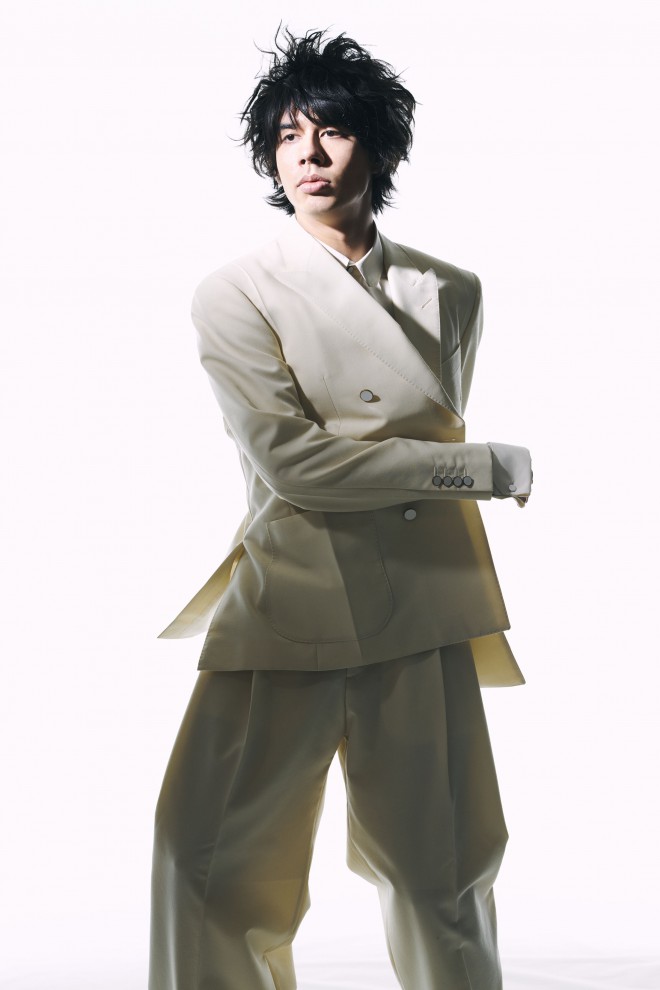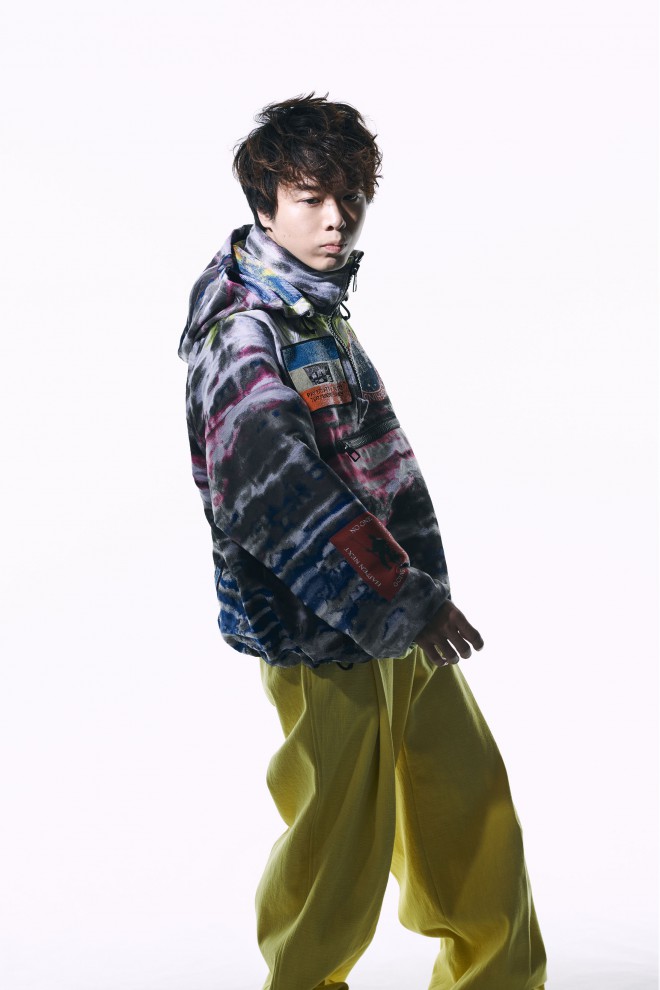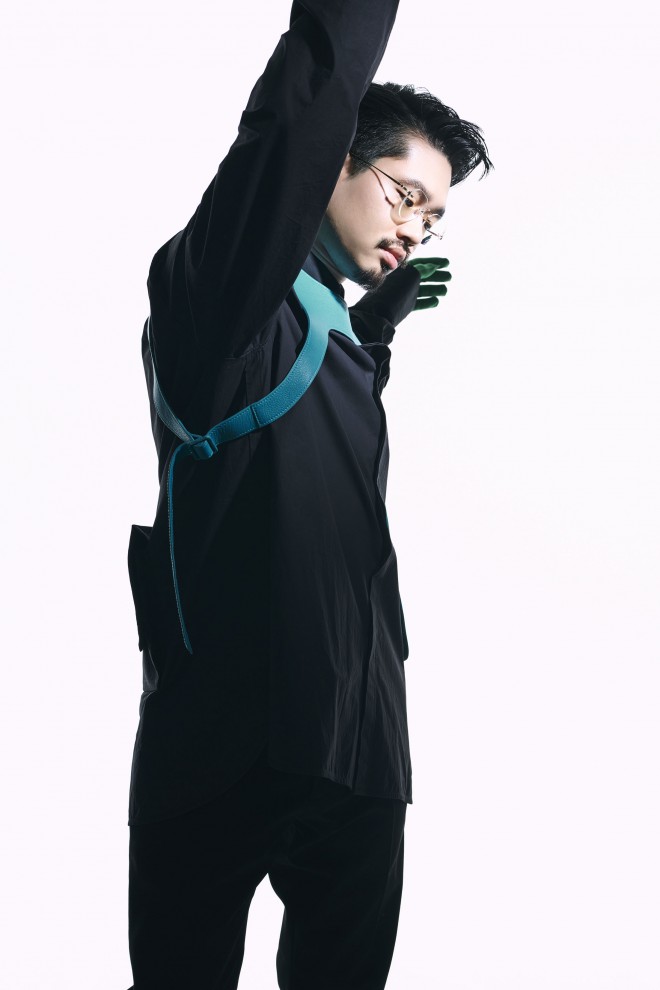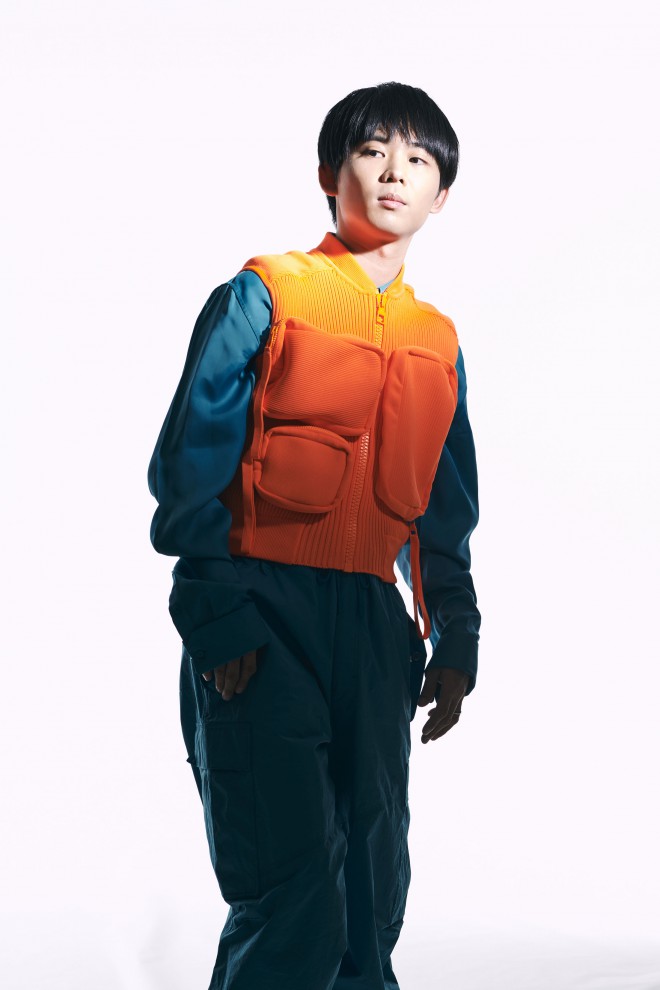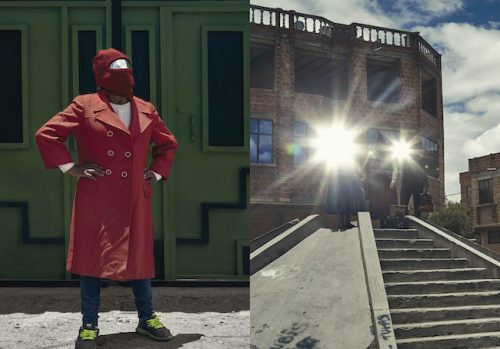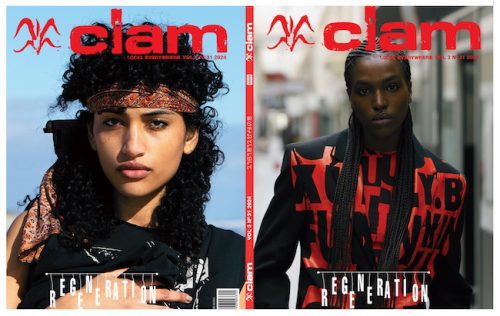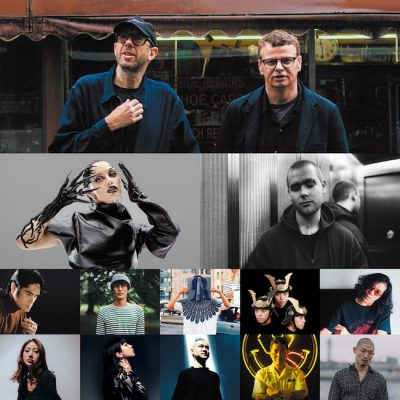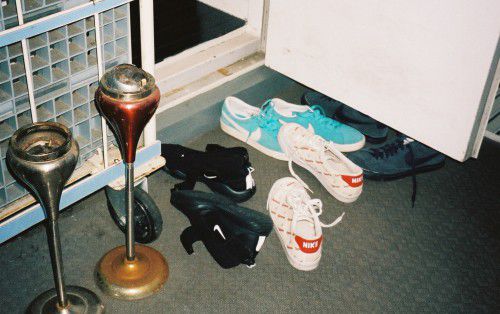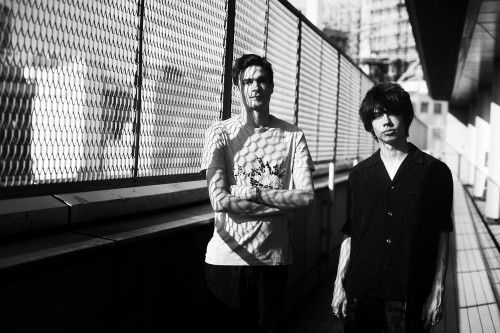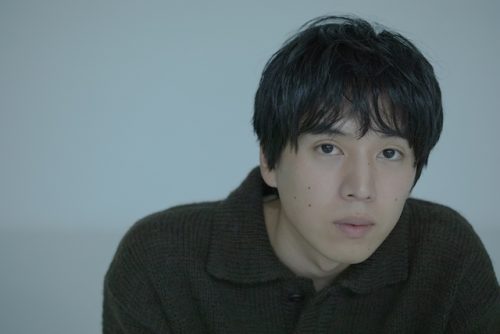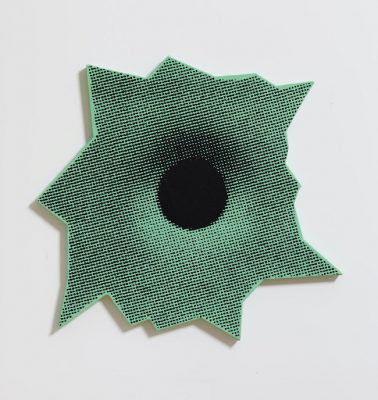OKAMOTO’S, who released their album “BOY” to celebrate their 10th Anniversary, have always told us that they strive to do what only they can do. After 10 years, through their free ideas, deep knowledge, exquisite technique to execute, and balance of the roles of the 4 members, the band has proved themselves as one that anybody would recognize as “the one and only”. We asked OKAMOTO’S, who showed us sophisticated expressions during their celebration shoot with Louis Vuitton, what it means to continue doing what you love and being true to yourself.
――OKAMOTO’S has been a band that has continued to do what they love, so it would be great to hear about your secrets to achieving that. First, how do you feel about the last 10 years?
Koki: “We have done what we love, but it was not in a rushed way. I feel we have always done it in a slow, steady way.”
Hama: “It’s not like we were trying to be slow and steady. We have never for once thought, “it’s okay if we don’t sell” and we have even tried to change our approach to be a fast hit band. However, that sort of approach was impossible for us. So now looking back at it, I simply think our band took a different route. I think we entered our tenth year feeling things we would have never imagined we would, because we moved forward in our own way. When we started, we imagined either having a sense of calmness that’s not like the calmness we have today, or quitting, so it’s very interesting. I don’t particularly have a deep realization that our paths were severe or too difficult.”
Sho: “There were times when I wished we would sell more, but there were also times when I realized more people knew us than I thought. I’ve begun to think that the more you do what you do, you will slowly start to be recognized.”
Hama: “The difficulty of the world “sell” is something we have talked about together for the past few years. As in, what does it mean to want to sell more?”
――What does it mean to be “selling successfully” to you guys?
Reiji: “To not sell successfully refers to when even though our imaginations are growing, our budgets are not keeping up. Let’s say there is a view that you see now when you are on stage. The view will change depending on what stage you are on, so I think those who sell themselves successfully are those people who are able to grow their views and values while doing what they want, all while having a good budget. Like, what Kanye West is doing is super out there and out of the ordinary. However, he has the budget to back up those weird ideas so he’s able to make wax figures of a hundred celebrities and make a music video. By shaping his ideas, he becomes a more reliable figure, and I think that’s what it means to sell yourself successfully. Even if you have the imagination, you must have a budget, and even if you have the budget, without the imagination you’re just a one time hit. Those who are bursting with both money and ideas are those who will succeed.”
Hama: “In our perspective, we have been able to do what we want to do, but the more budget and fans we can get, the more opportunities we’ll have and simply put, the wider our dreams become. In that sense, I want to dream bigger and prove ourselves even more. But after doing the band for 10 years, you begin to see things in an objective way. If we were to become super famous tomorrow, that doesn’t necessarily mean it’ll be great for us. It’s been 10 years of being able to think about things like that.”
Koki: “The standards of selling are always changing, so it’s true that what you want to do and what it takes to carry out that idea must be well-balanced.”
Sho: “Now, after getting better at quality control, we have slowly been able to not feel any weird attachments or negativities.”
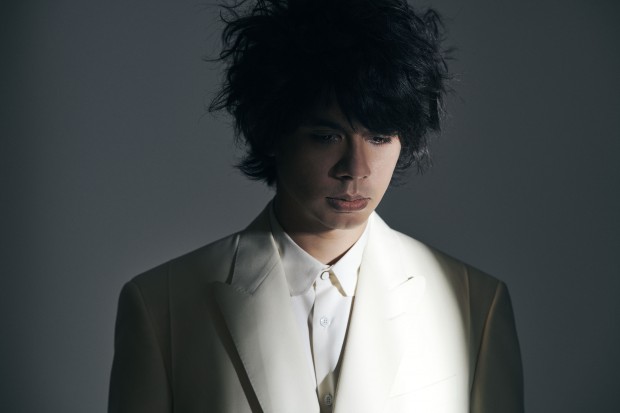
――I think quality control and the way you face your work is very important, but how were you able to do so and what made you do so?
Sho: “I thought of selling successfully as increasing the number of people who will look at the band and say, “These people are this way”, and understand us. So I had selfish thoughts, such as ‘I want them to understand the message the way I meant for it to be understood’, ‘I want them to like what I like’. For me, I was in a rut the fourth and fifth years, and I feel that it was a time when we underwent change. After worrying and contemplating those years, OPERA was what voiced our changes into sound. Since I was confident that I included all those selfish desires into OPERA, when I saw the amount of people who came to our tour, I was able to deal with and rid my thoughts. Almost like I entered nirvana.”
Hama: “I thought it was amazing how Zepp was fully booked with a weird album like that. So really, it’s all thanks to our audience. It was a big thing that their reactions to what we did bounced back at us with the same amount of energy.”
Reiji: “I think this when reading Sho’s lyrics, but in the end the listeners and creators are all humans, so it all depends on how much personal stuff you can reveal. OPERA was when we were able to do that.”
Sho: “I think that we’re a minority overall. But I have come to understand over the last 10 years that there are so many people who support this minority. In the end, the personal parts and the music’s content all follow the same direction as other bands when divided into big types. The people who like that and will pay for it are limited. Within those people, the ones who have chosen us depended on how much our goals are directed at our audience. I think the way we deliver may be more important than the content.”
Reiji: “Yeah. When we say ‘to become a global sensation’, it’s because our premise is to deliver.”
Sho: “That’s right. We’ve all talked about that before, that it’s not okay if the audience begins to not matter anymore.”
Reiji: “Our listeners have changed within the past 10 years, and so our recent album was created with a balance. I think subscription services like Apple Music and Spotify have also had a big influence.”
Koki: “We have also been able to continue doing what we do, fundamentally due to having live performances be our primary axis and playing instruments during our performances. The audience would come to our shows because of our live instrumentals.”
Reiji: “I also don’t think there are many bands that have members who equally love music the way we do. There are lots of bands where only 1 or 2 members adore music more than the others.”
Sho: “That’s true. What we have been doing has not changed at all, but they have begun to sync.”
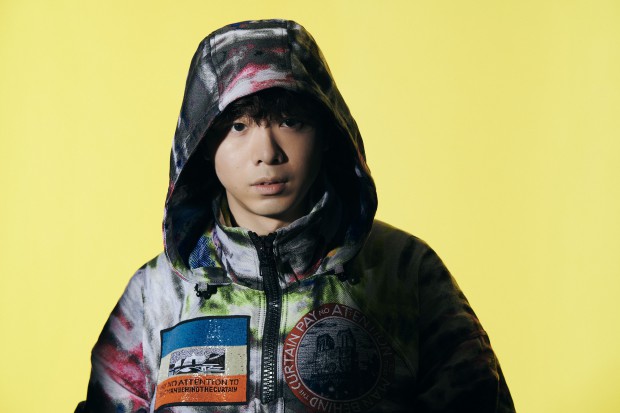
――I see. There were many hints during our talk just now, but again, what are your secrets to continue doing what you love as a job?
Sho: “Especially since our band doesn’t have a leader, when someone improves or is able to do something they weren’t able to do, we’ll think “wow”, or even “what’s he showing off for!”, but the important thing is that we use it as a motivation to better ourselves. I think as long as you’re a band, you must operate that way, even if you create something alone, no matter what job you have. You must be able to blame yourself in the event that something happens. Because you’re doing a job you love, those around you will not take responsibility for it. The best part about it is that you can really respect the people you work with, even if it’s out of competitiveness or whatever, you have to create an environment where you will continue striving to be better than those around you.”
Koki: “It’s similar to that, but those who have been in the industry for a long time tend to praise us warmly. I think it’s important that when we’re older and listening to younger people’s music, we sincerely feel that their music is good. Even though these people have been in the industry for longer, they incorporate fresh, new things which I have come to realize is important. I hope we’re like that in the future.”
Reiji: “Being able to live off a job you love, is honestly based on luck. But to continue doing one thing means to continue being curious and interested in something. In terms of music, it also means being a very good listener. If you’re interested in something, I think it’s because it is that person’s talent. Therefore, continuing to do something you have no interest in is a mistake, so no one should do that. You can make something a living without being interested in it, or even be very interested but not be able to make a living. To do both requires a large amount of luck, and since we were able to do both I am grateful for these past 10 years.”
Hama: “Right. You should consider yourself half successful the moment you know what you like. I also think the secret is to become your own fan. Know your faults, what you’re competitive and the best at, simply yourself without all of the decoration. There are many versions of yourself, but if you deny your own existence or value, you cannot continue to live. No one will understand yourself better than you do.”
――Hama, you originally said that your self-esteem wasn’t that high. How has that improved?
Hama: “I still think that only you can know yourself completely, but like the talk about quality control earlier, perhaps it’s due to instances when I realize that people recognize me more than I thought they did. Because the audience was there, my stance of “no one will understand” kind of melted away. I realized that pretending not to be confident in myself was rude. Of course, to strive and be ambitious is a good thing.”
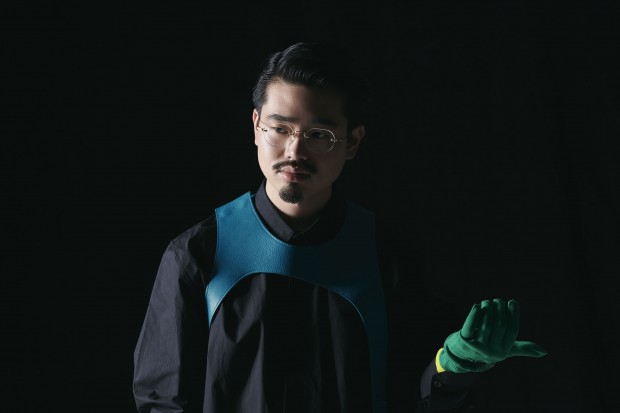
――How did OKAMOTO’S, a ball of individuality, build up its originality?
Sho: “Personally I’ve thought about that, but I came to the conclusion that you cannot create originality yourself. The hint lies in how others view you, and unless others point it out, it won’t become something that’s original to you.”
――In your case, I believe the evaluation of you was based on your hours and hours of songwriting and reflection.
Sho: “Ah! It’s true that I have been putting more effort into outputting things. For example, writing one song a day. Skills take time for improvement. Outputting takes your senses and expresses them with skills. Sometimes simply having a good sense will get you something good, but you will need skills to supply steady ideas. You need discipline for that, so I worked very hard.”
Reiji: “This is about someone else, but when I went over to my mentor’s house, we got into the topic of Ramones. He said, “Ramones is so cool, but no matter how I try to copy them I won’t ever sound like Ramones. That’s pure individuality that no one can ever copy. You have to realize that in yourself and grow that part of you.” It’s the same thing that Sho said, and that you have to put in the effort to find originality. It’s individuality that you are challenging yourself to work towards something you like, and you are contemplating on what you cannot do.”
Hama: “I also think that originality is something that someone finds for you. And to continue to not be decorative or flashy in order for people to find that within you. Therefore, knowledge and experience are very important in expressing originality. Then the second phase is to have others point out your originality and you realizing it. Then you can strategically grow that part of yourself. When that is strongly shaped, you realize that your talent has spread to many people and it becomes your character. If you fail in its direction or timing, you may struggle saying that this isn’t the real me. In the worst case it becomes something you cannot take back. It’s the most difficult because you cannot point it out yourself.”
Reiji: “It means that we have to continue to express ourselves. We won’t receive anything back without putting something out there for people.”
Hama: “We also have to find people who will give feedback in return.”
Reiji: “It’s good to have a friend you can trust.”
Koki: “Carefully copying is also important.”
Sho: “With love.”
Koki: “Yeah, with respect. You’ll most likely begin to see a new part of yourself from it too. Through OKAMOTO’S and playing songs by different people, there were many opportunities for me to learn about other people’s originalities.”
Hama: “I also think subjectively repeating trial & error is also very important. A lot of people are afraid and want to succeed from the first try.”
Reiji: “ I think there are more and more people who fear trial & error. Nowadays, you can spread things to the world from your first try and it’ll stay there forever. On the good hand, it’s a great motivator but on the other hand it’ll only be a fear. I think if it just means having individuality, it’s much more simple. You just have to do things that people are not doing.”
Sho: “This was written in Yoro Takeshi’s “Baka No Kabe”…”」
Hama: “Wow, throwback haha.”
Sho: “Right? Haha. “Society expects individuality from us, but those who are really original are not expected of anything, and is expected of a fair amount of individuality that’s different from people. You copy people, spread, listen to people’s criticism, and contemplate. Repeating this, you are training. We’re able to think like this now, but OKAMOTO’S in the beginning was too reliant on individuality. We were nothing more than a group pushing to sell originality, and we paid no attention to the songs or the lyrics.”
Reiji: “That may be true. In that sense, I think it’s better to be fresh than be original. Yasuyuki Okamura songs are fresh even when I listen to them now. I can’t tell what period the music comes from, and there are no other words to describe it than fresh. Hip-hop is like this, but it keeps the freshness of when it was first created. Even if it is a copy of something, or a mashup of a copy, it still had the potential to be fresh.”
Sho: “It’s a type of discovery. In the way that no one had done it before.”
Hama: “As you continue to copy, you realize the greatness of originals. So you have to be able to escape and get out of making copies. It should be fun.”
Reiji: “Also, in a healthy way.”
Hama: “I thought it was something my mentors would say, but I’ve begun to catch ourselves deteriorating, so I’ve been saying things like “You should do some exercise” haha.”
Reiji: “I’m really worried for Hama. He watches too much Netflix.”
Koki: “You should exercise while watching Netflix.”
Reiji: “That’s good, there’s a machine in the gym where you can walk while watching videos so I want you to try! Also, watching is okay but you haven’t been sleeping have you? Only like 3 hours a day. What if you just go plop, one day?”
Hama: “Okay…. It’s true that you have to be mentally and physically healthy.
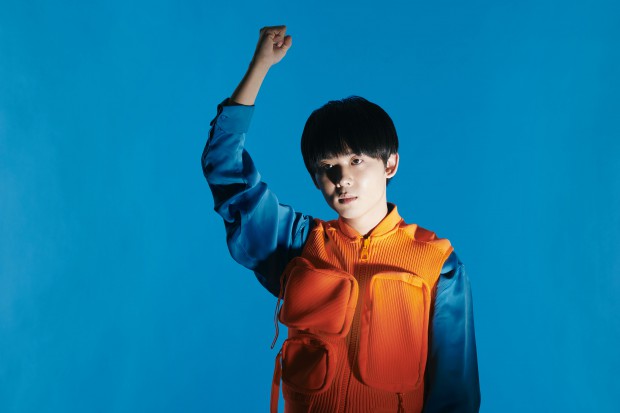
――Haha. Your upcoming plans involve Budokan, but what do you want to do from hereon?
Hama: “A Zepp Tour. I’ve been saying this for forever, but it’s become more realistic.”
――I would love to see SXSW (South By Southwest) again.
Hama: “I want to! Austin has loads of records and instruments so I would love to go. Last time our budget was the equivalent of a children’s field trip so we couldn’t buy anything.
Sho: “We bought a weird sticker and that was that.”
Reiji: “The instruments were sold for unbelievably cheap prices, so it was a shame.”
Koki: “I want to time travel back to that time!!”
――I was talking about the future but here we are talking about going back in time, haha.
Sho: “Also, I want to go on more tours in Asia than America. Shanghai has changed tremendously over the last 1-2 years.”
――There are many OKAMOTO’s fans on Weibo (Chinese Social Media) too (Shows search results).
All four: “Whoa! Amazing.”
Hama: “I had no idea…”
Koki: “I wanna go! Very bad!”
Reiji: “Our lyrics are in english, and our aggressive sound might be something they want.”
Sho: “I hope to go beyond world boundaries like that, and I want to switch gears and go from the admirer to someone who is admired. I want to always be on the lookout for freshness and continue doing what we do.”
photography Satoshi Minakawa
style Hayato Takada
hair & make-up Takahiro Hashimoto(SHIMA)
edit & text Ryoko Kuwahara
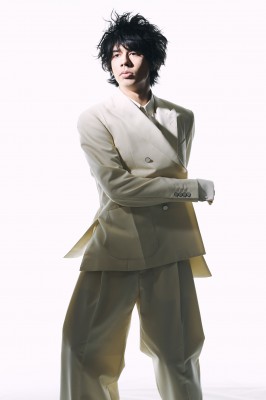
jacket ¥363,000 shirt ¥156,000 pants ¥140,000 /LOUIS VUITTON
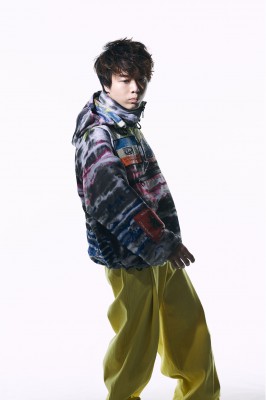
blouson ¥775,000 pants ¥125,000 /LOUIS VUITTON
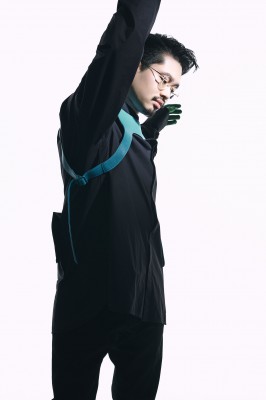
gilet ¥300,000 shirt ¥125,000 pants ¥125,000 glove ¥38,000 /LOUIS VUITTON
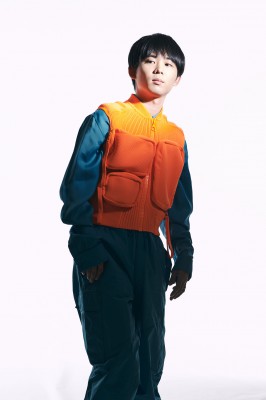
gilet ¥394,000 shirt ¥102,000 pants ¥173,000 /LOUIS VUITTON
*all listed prices are tax excluding
LOUIS VUITTON
www.louisvuitton.com
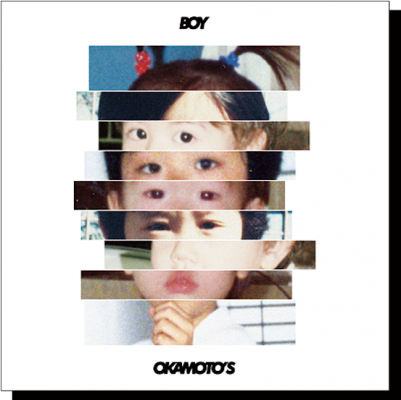
OKAMOTO’S
『BOY』
Now On Sale
iTuns
Amazon
OKAMOTO’S
Sho Okamoto (Vo), Koki Okamoto (G), Hama Okamoto (B), Reiji Okamoto (Dr).
Released album “10’s” in May 2010, “Okamoto’s ni Muchū” in November, “Yokubo” in September 2011. Released 4th album “OKAMOTO’S” in January 2013, and in July released their two sided single “JOY JOY JOY/Kokuhaku”, on November 6th their new single “SEXY BODY”. January 15th 2014, released 5th album “Let it V” that welcomed Kururi Hamada, on August 17th collaborated with RIP SLYME, Tamio Okuda, Kuroneko Chelsea, Tokyo Ska Paradise Orchestra, and ROY (THE BAWDIES) to release their 5.5th album “VXV”. On September 30th 2015, released 6th album “OPERA”. On July 1st, 2016 released Netflix series Hibana’s theme song “BROTHER”. On October 29th, announced at the Tokyo Hibiya Open Air Concert Hall, a tour over 47 prefectures. With the same tour’s music and the lyrics written during the tour, recorded new single “ROCKY”. Released a Blu-ray video compilation of the tour final in live album “LIVE” on May 31st, 2017. Released album “NO MORE MUSIC” on August 2nd. During the same year on October 7th, announced a one-man live at Nakano Sun Plaza and sold out. On the 30th, starting at Ebisu Liquid Room, toured 23 places within the country through “OKAMOTO’S TOUR 2017-2018 NO MORE MUSIC”. Their final show, Zepp Tokyo was also sold out. Sho Okamoto’s solo tour was held in April, with Shigeru Suzuki x Hidefumi Ino and special support with Hayashi Tatsuo and Hama Okamoto. Started in July, and ended successfully with good reviews. In November, held a show in Touhan Hall and a collaborative band tour in the Tokai area. On January 9th, 2019 released album “BOY”. On April 6th, 2019 starting at the Yokohama BAYHALL, started OKAMOTO’S 10th ANNIVERSARY LIVE TOUR 2019 “BOY”. Scheduled to perform on June 27th, 2019 at Nippon Budokan. Tour details on website.
